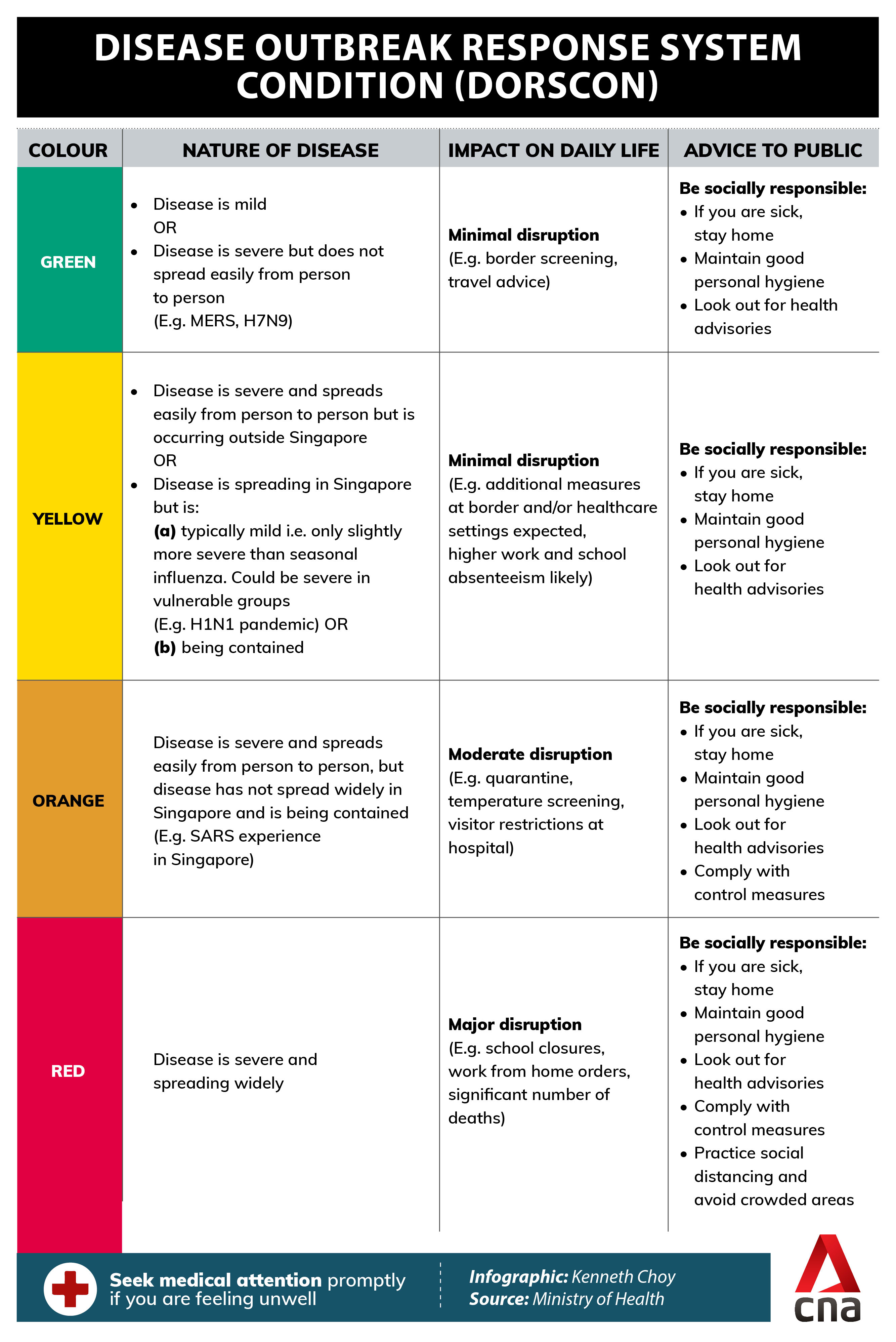https://www.channelnewsasia.com/singapore/mask-wearing-feb-13-dorscon-green-mtf-covid-19-3265126
SINGAPORE: The wearing of masks on public transport as well as some healthcare and residential care settings will no longer be mandatory from Monday (Feb 13), when Singapore also steps down its disease alert to its lowest level since the COVID-19 pandemic started.
But the Ministry of Health (MOH) said on Thursday that it will retain the practice of mask-wearing for visitors, staff and patients in settings where there is interaction with patients as well as in indoor patient-facing areas - like hospitals, clinics and nursing homes.
This will be an MOH requirement rather than mandated under COVID-19 regulations, to better protect patients and healthcare workers from infectious diseases in general, the ministry said in a press release.
Since April last year, Singapore has also maintained a Yellow status - the second lowest tier - under its Disease Outbreak Response System Condition (DORSCON) framework.
From Monday, it will move down to code Green, putting COVID-19 in the same category as the Middle East Respiratory Syndrome (MERS) and the H7N9 bird flu strain.
Related:


It was three years ago when Singapore first raised its DORSCON level to Orange on February 7, 2020 and implemented mask-wearing requirements in April 2020.
"A new, endemic COVID-19 normal will ... not be static, and we will adjust our measures when necessary," said MOH.
"But unless it is a very dangerous and virulent variant, we should be able to manage these subsequent waves with an appropriate level of measures that does not deviate significantly from the new norm, and continue to live our lives normally."
The ministry also announced that the multi-ministry taskforce (MTF), convened in January 2020 as a whole-of-Government response to COVID-19, will be stepped down.
Instead, MOH will take over management of the COVID-19 situation. But if the situation worsens significantly, the Government will reactivate an appropriate multiagency crisis management structure.
REMOVAL OF COVID-19 PROTOCOLS
MOH also said it would stand down, from Feb 13,
Protocols 1-2-3 - which determine what individuals should do if they are unwell or test positive for COVID-19.
Under a new general advisory, medically vulnerable persons that have Acute Respiratory Infection (ARI) symptoms, as well as persons with severe, prolonged or worsening ARI symptoms, should see a doctor.
Those with mild ARI symptoms should stay at home until symptoms resolve.
If there is a need to go out while symptomatic, or if asymptomatic but positive for COVID-19, individuals should exercise social responsibility by minimising social interactions, wearing a mask and avoiding crowded places, said MOH.
The ministry also announced the stepping down of contact tracing tool TraceTogether (TT) and the SafeEntry (SE) digital check-in system.
Members of the public can uninstall their TraceTogether App, and companies may do the same for the SafeEntry (Business) App.
A TraceTogether token return exercise will take place from Feb 13 to Mar 12, and members of the public can return their tokens at counters at all 108 Community Clubs or Centres (CCs).
"Over the past few months, as the pandemic situation stabilised, the Government has progressively stepped down TT and SE," said MOH.
"We no longer require infected persons to submit TT data, SE data is no longer being collected, and MOH has deleted all identifiable TT and SE data from its servers and databases."
At the same time, MOH said it was "useful" to keep both systems ready for reactivation in the event that new, more dangerous variants of concern emerge. For this purpose, registration details such as names and mobile numbers will be retained in the system, said the ministry.

